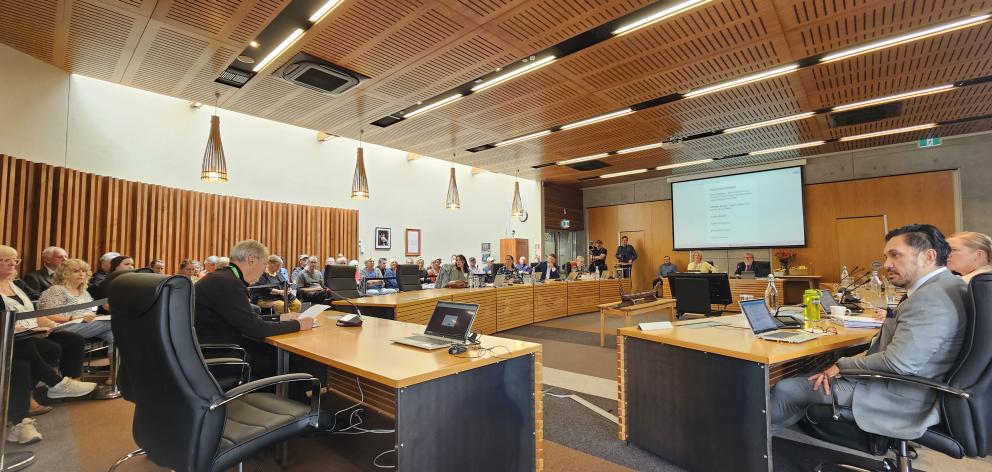Hut residents packed the public gallery at the Selwyn District Council chambers yesterday, with some pleading their case to continue living on the Crown-owned land indefinitely.
But it did little to change the minds of councillors. By June 30, 2039, all residents will now have to leave the settlement and remove all huts and other structures.
The huts, near Te Waihora Lake Ellesmere, were established in 1895 and were originally only intended to be fishing huts. But since the 1990s, there has been a gradual shift to permanent occupancy. The impact of climate change on the area is the main driver for the council's decision to vacate the huts. Modelling shows high-intensity rainfall and rising sea and lake levels may put the settlement at risk.
Nearby Greenpark Huts will also be vacated by June 30 this year for similar reasons, while Lower Selwyn Huts residents have until 2034 to leave their homes. Upper Selwyn Huts are further away from Lake Ellesmere, so the council has given residents an extra five years to vacate the area.
The original resource consent for Lower Selwyn Huts wastewater system also officially expired in 2020. Since then, Environment Canterbury has been granting short-term extensions to use the wastewater system while the community and district council worked to find a solution. The current extension will end on June 30.
Staff recommended residents pay for 50 per cent of a new $4 million wastewater pipeline connecting the huts to the Pines Wastewater Treatment Plant near Burnham. This will be built to service the settlement until it has to be vacated.
Selwyn Hut Owners Association chair Graham Evans called on district councillors to delay their decision for a month to give residents time to understand how it will impact on the settlement's future.
"I'm concerned the Selwyn Huts is likely to become a freedom camping area, using the toilets that are there, common room, tennis courts and playground."

Springs Ward councillor Grant Miller said: "I want to acknowledge to the people here that we haven't handled this well ... this is our first attempt at a retreat conversation and I don't think we have handled it well."
Due to the pipeline's lifespan of more than 50 years, Rolleston Ward district councillor Phil Dean proposed an amendment that hut owners only pay 30 per cent of the cost.
It was supported by Ellesmere Ward councillors Shane Epiha and Elizabeth Mundt, Spings Ward councillors Debra Hasson and Miller, Malvern Ward councillors Bob Mugford and Lydia Gliddon, and Rolleston Ward councillor Nicole Reid. Rolleston Ward councillor Sophie McInnes abstained.
Epiha, Dean, Hasson, McInnes, Miller, Reid and deputy mayor Malcolm Lyall voted to keep the staff recommendation of 15 years. Mugford, Mundt, and Gliddon voted against it.
Mayor Sam Broughton was absent due to a family matter.
"Thank you councillors that has been a long and tortured process and there has been a lot of emotion in the room," Lyall said after the vote was taken.
Residents will now pay about $1.2 million towards the pipeline, instead of the proposed $2 million. The exact cost to individual owners has not been calculated.

There will also be a building inspection programme at the huts.
District council executive director enabling services Tim Harris said he was aware the inspections were a difficult issue.
He said the council has sought legal advice and given it manages the land it has a duty of care to the residents above what it has to other private landowners.
The new licences will also likely include a bond of $383 a year to be paid by hut owners to help the district council recuperate costs if a hut is abandoned without being demolished.
District council chief executive Sharon Mason said the vote did not mean the end of the conversation, with the council planning to work with hut owners until the end of May before it goes back to the council for final approval, following which hut owners will have until June 30 to sign onto the new licences.













